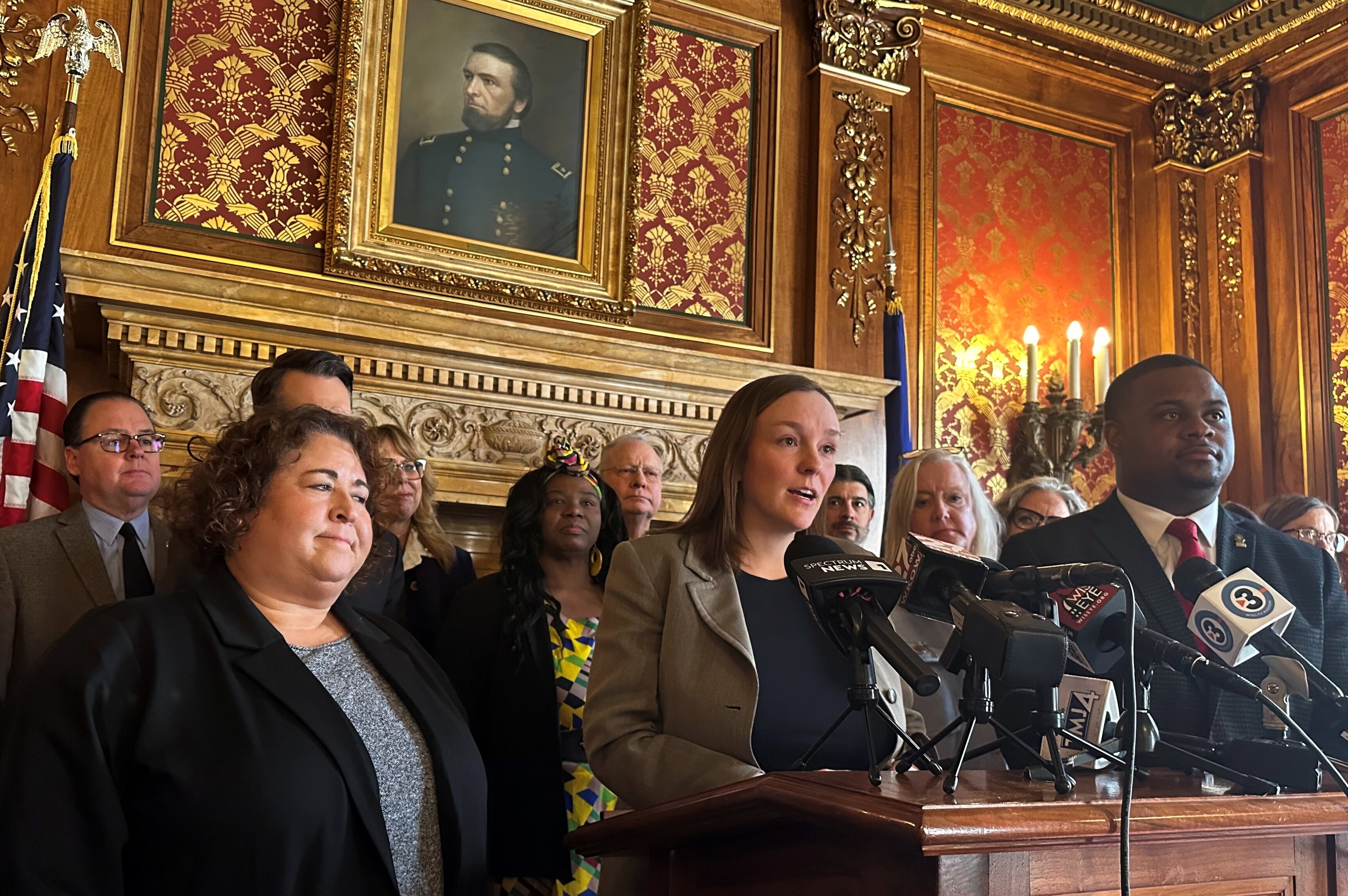Medicaid cuts ahead prompt Lavonia hospital to shutter childbirth unit

A northeast Georgia hospital is closing its labor and delivery unit after determining that its precarious finances could not weather further funding cuts in President Donald Trump’s new tax and spending law.
The One Big Beautiful Bill Act passed by congressional Republicans and signed on July Fourth slashes health care spending nationwide over the next 10 years by more than $1 trillion. In rural areas alone, federal Medicaid spending will be cut by about $137 billion, according to the health research organization KFF.
Like many rural hospitals in Georgia, officials at St. Mary’s Sacred Heart Hospital in Lavonia said they face challenges recruiting physicians to the area and are contending with an aging population and fewer young women having babies.
Hospital spokesperson Mark Ralston said anticipated cuts to federal assistance forced the hospital’s hand.
“We are feeling very desperate and destitute,” said Kristy Wynn, who works at the Hart Life Pregnancy Care Center in nearby Hartwell, a city of about 4,500 near the South Carolina border.
Hart Life helps coordinate care for pregnant women and girls, taking them to the hospital if they need it.
“Our fear is there’s going to be highway deliveries. There’s going to be women on the side of the road having babies and no prenatal care,” Wynn said.
Victoria LaCivita, a spokesperson for the White House, defended the president’s measure, noting it includes $50 billion for rural health.
“President Trump’s Rural Health Transformation Program is a $50 billion investment from the federal government — the largest investment in rural health care to date — that will drive reform and target the systemic reasons why hospitals in rural America have struggled for years,” she said in a press call. “This program is a win for every rural community across the country.”
Who gets the $50 billion is still to be determined. It’s expected to offset only about one-third of the cuts to rural health elsewhere in the bill, KFF found.
Many struggling hospitals already teetering on the edge have seen the federal cuts as a death knell. A clinic in rural Nebraska, scheduled to shutter Sept. 30, was the first health facility to announce it was closing as a result of the law.
The Lavonia facility’s announcement comes after 18 months of effort to find other funding sources, Ralston said. Cutting the delivery unit will keep other services open, he said.
Closures also mean patients, many of whom don’t have reliable access to a car, must travel even further to get care. According to a 2023 report on maternity care from the March of Dimes, almost 16% of women in Georgia had no birthing hospital within 30 minutes of where they live.
That figure jumps dramatically for women in rural areas, where 61% of women live more than 30 minutes from a birthing hospital. To get to the closest one, women in Georgia would have to travel an average of about 13.5 miles, which is about the average compared to other states in the southeast.
But with the closure in Lavonia, expectant mothers will instead be directed to deliver at St. Mary’s Hospital in Athens, about 45 miles away. The switch will take effect in late October. The hospital is also closing its obstetrics and gynecology unit.
“This latest closure will force pregnant women to travel even greater distances for essential care,” said Margaret Master, the executive director of Healthy Mothers, Healthy Babies in Georgia. “For many families, this means choosing between economic hardship and safe delivery options.”
The hardest hit hospitals are largely in rural areas represented in Georgia by Republicans, but the opposition to the budget reconciliation law has primarily come from Democrats.
“This is a hospital here in Georgia that is no longer going to be able to provide services to delivering mothers and newborn babies because of that terrible bill that they passed in Congress,” said U.S. Sen. Jon Ossoff, D-Atlanta.
U.S. Rep. Buddy Carter, R-St. Simons Island, who voted for the law, said in a statement the hospital could take advantage of the $50 billion rural fund “to keep its doors open.” However, that funding is temporary and not limited to just hospitals.
“Blaming any closures on savings made to address waste, fraud and abuse in Medicaid is a false argument,” Carter said.
Elsewhere in Georgia, Evans Memorial Hospital, located 50 miles west of Savannah in Claxton, is facing a $3.3 million budget shortfall next year.
While health care providers are bracing now, most of the bill’s impacts will be felt in 2027, after the midterm elections.
Hospital closures have significant impacts on rural communities, especially where health outcomes like cancer rates and heart disease tend to be worse. The health networks also are large employers, often providing hundreds of jobs.
St. Mary’s said it will encourage affected staff to apply to other hospitals within the network, but nearby hospitals are unlikely to be able to absorb all of the laid-off workers.



